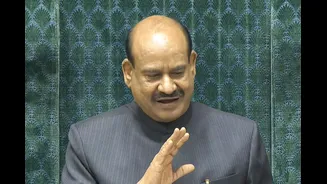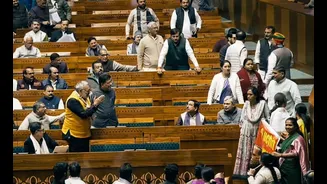The Green Initiative Unveiled
Singapore is embarking on an innovative environmental strategy within the aviation industry, implementing a green fuel levy on flights. This financial
measure, collected by the Civil Aviation Authority of Singapore (CAAS), directs funds toward a crucial objective: the procurement and handling of sustainable aviation fuel (SAF). This move highlights Singapore's commitment to diminish its carbon emissions, acknowledging the significance of aviation's environmental footprint. The CAAS will take charge of managing the distribution and application of SAF across the aviation sector. This strategic move aligns with global efforts to transition to cleaner energy sources. By taking this initiative, Singapore is setting a precedent, potentially inspiring other nations to adopt similar measures in an effort to combat climate change.
Fuel Levy Mechanism Explained
The green fuel levy in Singapore functions as a dedicated fee added to air tickets, specifically intended for the acquisition of sustainable aviation fuel. The collected funds will go to the Civil Aviation Authority of Singapore (CAAS), which is responsible for the financial administration and strategic application of these resources. SAF, a fuel derived from sustainable sources, plays an integral role in minimizing aviation's carbon impact. The levy's mechanics involve the CAAS negotiating and contracting for SAF, guaranteeing its availability to airlines operating in Singapore. This method is devised to encourage the aviation sector to embrace more environmentally friendly options, thereby advancing the nation’s dedication to sustainable practices. This levy's implementation is a practical step toward fostering sustainability in air travel.
Impact on Airfares Analyzed
A primary concern surrounding the green fuel levy in Singapore is its potential effect on airfares. While the exact figures will fluctuate according to the levy amount and airline-specific operations, it's widely expected that airfares might see an increase. The additional cost is directly tied to the procurement of sustainable aviation fuel, which is generally more expensive than traditional jet fuel. Airlines may pass on these augmented expenses to passengers, resulting in pricier tickets. It’s important to note that the extent of the fare increase could depend on multiple factors, including the market competitiveness among airlines and the overall demand for air travel. Travelers may need to plan for potentially higher travel expenses, especially on flights to and from Singapore, as this levy takes effect. The balance between sustainable goals and affordability may present airlines with a strategic challenge in the coming years.
Sustainable Aviation Fuel Overview
Sustainable aviation fuel (SAF) forms the cornerstone of Singapore's green fuel levy initiative. SAF is defined as a biofuel alternative derived from sustainable sources like renewable biomass, waste streams, and other environmentally-friendly resources. Unlike conventional jet fuel, SAF significantly decreases greenhouse gas emissions during the lifecycle, thereby contributing to lessening aviation's carbon footprint. The environmental advantages of using SAF include reduced carbon emissions, improved air quality, and support for sustainable agriculture. The procurement of SAF by the CAAS signifies a strategic move towards a more sustainable aviation sector, aligning with worldwide sustainability targets. Singapore's investment in SAF showcases its commitment to embracing clean energy alternatives and decreasing the adverse environmental impacts of aviation. SAF's adoption also potentially fosters innovation and growth in sustainable fuel technologies.
CAAS’s Role and Management
The Civil Aviation Authority of Singapore (CAAS) is pivotal in managing the green fuel levy and the procurement of sustainable aviation fuel. The CAAS is responsible for collecting the levy from airlines and subsequently allocating these funds to acquire SAF. This position includes overseeing contracts, ensuring efficient distribution, and confirming the quality and sustainability of SAF. The CAAS plays a regulatory role, thereby guaranteeing that SAF meets necessary standards, and supports the environmental objectives set by the nation. Its role also entails informing the public and airlines about the levy’s function and influence on the industry. The effective management by the CAAS is crucial for the success of the initiative, ensuring transparency, accountability, and the efficient advancement of sustainable practices within the aviation sector.
Industry Reactions and Responses
The implementation of Singapore's green fuel levy is anticipated to trigger various responses from within the aviation industry. Airlines are predicted to analyze the effects of higher operational costs and to modify their pricing structures in response. Passengers may display a varying willingness to pay more for flights as they become more aware of the environmental impacts of air travel. Aviation industry associations might engage in conversations with the CAAS and other stakeholders to guarantee a fair and clear rollout of the levy. Reactions could also extend to adjustments in airlines' sustainability strategies. Some airlines may invest in SAF initiatives or enhance operational efficiencies to offset increasing fuel costs. The response from the industry will eventually determine the success of Singapore’s green fuel levy and its role in encouraging a more sustainable aviation industry.
Future of Aviation Sustainability
Singapore’s green fuel levy represents a critical step towards aviation sustainability, and it suggests potential future pathways. This action could inspire additional nations to adopt similar policies, consequently boosting the overall adoption of SAF and other environmentally-friendly practices within the aviation sector. Ongoing advancements in SAF technology and production processes are expected to lessen its costs, making it more affordable and accessible to airlines. Further measures, like optimizing flight paths, using fuel-efficient aircraft, and investing in electric or hybrid-electric aircraft technologies, may also contribute to sustainability. Singapore’s leadership in this field can push innovation and collaboration among airlines, governments, and technology providers, resulting in a more sustainable future for global air travel. The ultimate objective is to reduce the environmental footprint of aviation while continuing to provide essential global connectivity.














